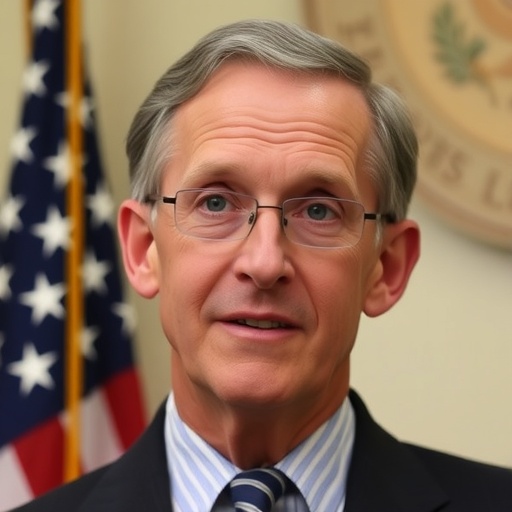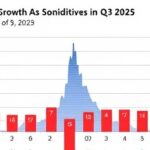In a stark revelation that has sent ripples through financial markets, US Treasury Secretary Scott Bessent declared that critical sectors of the US economy, including the beleaguered housing market, are already mired in recession territory. Speaking at a high-profile economic forum in Washington D.C., Bessent attributed this downturn directly to the Federal Reserve‘s prolonged stance on interest rates, which remain elevated at levels not seen in decades. “We can’t ignore the pain in these areas any longer,” Bessent emphasized, calling for accelerated rate reductions to avert a wider economic crisis that could engulf consumers and businesses alike.
- Bessent’s Dire Assessment of Sector-Specific Recession Signals
- Housing Market’s Collapse Under Persistent Rate Pressure
- Federal Reserve Faces Mounting Pressure for Rate Cut Acceleration
- Ripple Effects on Consumers and Businesses in the US Economy
- Path Forward: Policy Shifts and Economic Recovery Prospects
Bessent’s Dire Assessment of Sector-Specific Recession Signals
US Treasury Secretary Scott Bessent’s comments came during a panel discussion on monetary policy’s real-world impacts, where he painted a vivid picture of an economy fracturing along sectoral lines. While overall GDP growth has held steady at around 2.5% for the past quarter, Bessent argued that this aggregate figure masks deeper troubles. “The housing market isn’t just slowing—it’s in full recession,” he stated, citing a 20% drop in home sales year-over-year and a surge in mortgage delinquency rates to 4.2%, the highest since 2010.
Bessent, a former hedge fund manager with deep Wall Street ties, didn’t mince words about the US economy‘s vulnerabilities. He referenced data from the National Association of Realtors showing that median home prices, while still elevated at $412,000, have stagnated amid buyer hesitation. “High interest rates are choking off affordability,” Bessent explained, noting that the average 30-year fixed mortgage rate hovers at 7.2%, doubling from pre-pandemic levels. This has led to a 15% decline in housing starts, according to the latest Census Bureau figures, signaling a contraction that could ripple into construction jobs and related industries.
Experts echoed Bessent’s concerns. Economist Dr. Elena Ramirez from the Brookings Institution remarked, “The Treasury Secretary is spot on—these aren’t isolated blips; they’re early warning signs of broader recession risks in the US economy.” She pointed to similar stresses in the auto sector, where high borrowing costs have curbed vehicle purchases, contributing to a 10% sales slump. Bessent’s warning aligns with recent labor market data, where manufacturing and real estate employment have shed over 50,000 jobs combined in the last six months, per the Bureau of Labor Statistics.
Housing Market’s Collapse Under Persistent Rate Pressure
The housing market, once a pillar of American economic strength, now exemplifies how elevated interest rates can precipitate a localized recession. Homebuilders are reeling from increased financing costs, with building permits down 12% from last year, as reported by the US Department of Housing and Urban Development. This slowdown isn’t merely cyclical; it’s structural, driven by the Federal Reserve‘s aggressive rate-hiking campaign initiated in 2022 to combat inflation.
Consider the numbers: Inventory levels have ballooned to 4.5 months’ supply, up from a tight 2.5 months in 2021, yet demand remains tepid. Prospective buyers, facing monthly mortgage payments that have risen by 50% since rates began climbing, are sidelined. A survey by Fannie Mae revealed that 40% of potential homebuyers have delayed purchases indefinitely due to affordability issues tied to these interest rates. “It’s a perfect storm,” said Mark Zandi, chief economist at Moody’s Analytics. “The housing market is the canary in the coal mine for the US economy, and it’s not singing.”
Regional disparities amplify the crisis. In high-cost states like California and New York, where median home prices exceed $600,000, the recession in housing is acute, with foreclosure starts up 25% in urban areas. Conversely, Sun Belt markets like Florida have seen some resilience, but even there, new construction has slowed by 18%. Bessent highlighted these trends in his remarks, urging policymakers to recognize that ignoring the housing market could exacerbate wealth inequality, as homeownership—a key path to building generational wealth—slips further from reach for millennials and Gen Z.
Historical parallels underscore the urgency. During the 2008 financial crisis, a housing-led recession dragged the entire US economy into abyss, with GDP contracting 4.3%. While today’s situation differs—no subprime bubble—Bessent warned that unchecked interest rates could mimic those dynamics, potentially leading to a 1-2% drag on growth if the Federal Reserve delays action.
Federal Reserve Faces Mounting Pressure for Rate Cut Acceleration
At the heart of Bessent’s critique is the Federal Reserve, whose benchmark federal funds rate stands at 5.25-5.50%, a level unchanged since July 2023. The Fed’s mandate to balance inflation control with employment has left it in a bind, but the Treasury Secretary’s plea for “faster rate cuts” signals growing impatience from the administration. Bessent suggested that the Fed could initiate cuts as early as the next meeting, potentially lowering rates by 50 basis points to ease pressure on sectors like housing.
Fed Chair Jerome Powell has acknowledged the trade-offs, stating in recent testimony before Congress that “we are monitoring the US economy closely for signs of recession.” Yet, with core inflation still at 3.2%—above the 2% target—the central bank remains cautious. Market futures now price in a 70% chance of a September rate cut, up from 40% a month ago, reflecting Bessent’s influence. Analysts at Goldman Sachs predict that without intervention, interest rates could prolong the housing market slump into 2025, shaving 0.5% off annual GDP growth.
Bessent’s advocacy isn’t without precedent. In past cycles, such as the 2019 repo market turmoil, Treasury-Fed coordination helped stabilize the US economy. Here, he proposed targeted measures, including expanding affordable housing initiatives funded by the Treasury, to complement any Federal Reserve moves. “Rate cuts alone won’t suffice; we need a multifaceted approach,” Bessent noted, alluding to fiscal policies like tax credits for first-time buyers.
Critics within the Fed, however, caution against premature easing. Dallas Fed President Lorie Logan argued that rushing cuts could reignite inflation, potentially leading to a more severe recession down the line. This tension highlights the high-stakes chess game between monetary and fiscal authorities, with the housing market as the immediate battleground.
Ripple Effects on Consumers and Businesses in the US Economy
Beyond housing, the recession in affected sectors is exacting a toll on everyday Americans and corporate bottom lines. Consumer spending, which drives 70% of the US economy, shows cracks: Retail sales in home improvement categories have fallen 8%, per Commerce Department data, as homeowners defer renovations amid high interest rates. Small businesses in real estate services report revenue drops of up to 30%, with many facing bankruptcy risks.
The labor market, a bright spot with unemployment at 3.8%, isn’t immune. Construction unemployment has ticked up to 5.1%, and related fields like furniture manufacturing are seeing layoffs. A report from the Joint Economic Committee estimates that sustained high interest rates could cost 200,000 jobs in housing alone by year’s end. For families, the impact is personal: Rising rents, up 6% nationally, compound the affordability crisis, pushing more into financial strain.
Corporate America is adapting, but not without pain. Major homebuilders like D.R. Horton have slashed dividends by 15% to conserve cash, while banks holding mortgage-backed securities face valuation hits. “The Federal Reserve‘s policy is inadvertently punishing savers and investors in productive sectors,” Bessent critiqued, advocating for a pivot to support innovation-driven growth.
International observers are watching closely. The IMF has revised its US growth forecast downward to 1.8% for 2024, citing interest rates as a drag. If the housing market recession deepens, it could weaken the dollar and fuel global trade tensions.
Path Forward: Policy Shifts and Economic Recovery Prospects
Looking ahead, Bessent’s intervention could catalyze change. The upcoming Fed meeting in late July will be pivotal, with whispers of dovish signals from regional presidents. If rate cuts materialize, analysts project a 10-15% rebound in housing market activity within quarters, bolstering the US economy. Treasury plans include a $50 billion infrastructure push for affordable housing, aiming to create 100,000 jobs and stimulate related sectors.
Yet, challenges persist. Inflation’s sticky components, like energy and wages, may force the Federal Reserve to tread lightly. Bessent called for bipartisan support on housing reforms, such as zoning changes to increase supply. “Preventing a full-blown recession requires agility now,” he urged, emphasizing that timely interest rates adjustments could preserve the US economy‘s resilience.
Investors are positioning accordingly: Mortgage REITs have surged 5% post-Bessent’s speech, betting on relief. For policymakers, the message is clear—act decisively to shield vulnerable sectors and sustain growth. As the US economy navigates these turbulent waters, the interplay between Treasury advocacy and Fed independence will shape the trajectory, potentially averting widespread pain or, if mishandled, amplifying it into a broader downturn.









